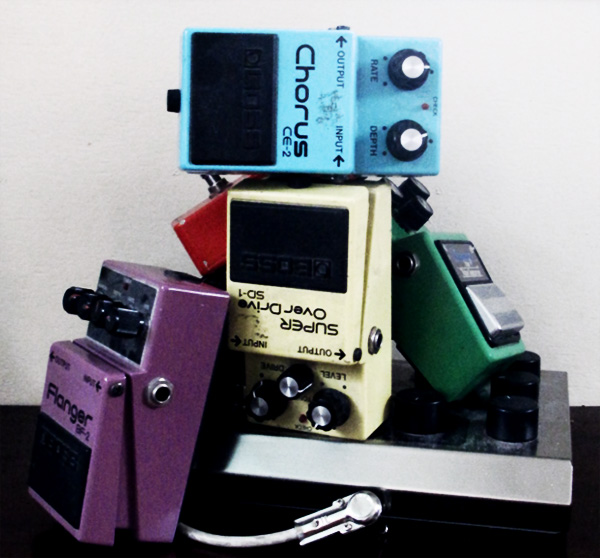Often we spend days or even weeks working on THE guitar tone in our bedroom (or perhaps that is just me). Once we are pleased with it, we proudly bring it to a practice session or to a gig and suddenly it does not sound that good at all. The most common complaints are that it does not cut through the mix or does not come out very clearly. Your band mates might even complain they cannot discern what you are playing (again perhaps that is just me)…
And even if you think you don’t have these problems, try to take notice at your next practice session or live gig, you might realize your tone can be greatly improved. I will cover live situations here but a lot of these tips are valid in recording situations as well. The biggest difference is that in a recording situation you have always some sort of possibility to rectify the tone during the mixing phase but a live gig is a fleeting moment…

I know that the first thing that people do to be more “present” is to just turn the volume up and up and up… We have all done it. This might work but will ultimately ruin the overall sound of the band as you will be over present, dare I say deafening?
There is a few changes you might want to try before pumping the hell out of your volume knob:
- if you have a lot of spatial effects such as delays and reverbs, you might want to turn them down or even off, at least just to see if your guitar cuts through the mix better. Remember that the presets on the shiny new multi-effect unit that you have just bought are probably “over the top” to make it sound better when you try it out in a shop.
- If you have a setting for mediums on your amp (or modeling amp, distortion pedal, multi-effect, etc.) you might want to try to increase it. On its own, it might make your sound unpleasant as a majority of us love “scooped” tones but, in a band situation, that might give you more presence. The body of the guitar tone is in the mids. And this is probably why the Tube Screamer is such a popular pedal as it has a mid range hump that will make it cut through the mix.
- Lower the gain: apart for styles that require extreme amounts of gain such as death metal, I often find that lowering the gain, even if it makes some licks harder to play, will give you more dynamics, expressiveness, and ultimately an improved presence. It will require some readjustments in your playing but it might we worth it.
- Play less: I know us guitarists have a tendency to want to “show off” but remember that, sometimes, a song might be best served by very simple licks or chords. Try to think of how your guitar should fit with the rest of the band and listen to your band mates, this is not a competition! And also if you play with a second guitarist and/or a keyboardist, try to find complementary parts and not to play the exact same thing (think Rolling Stones here).

i have a problem like this at the church that i play. mostly with the other guitarist and i. whenever i try to change my tone to make it sound different so that we don’t get lost together. he ends up changing it to sound more like mine. it gets frustrating. and i have tried a lot of these ideas. like rolling back the gain. that actually helped a lot. and i really don’t try to use much effects. i do use delay on a lot of songs but mostly its turned down kind of low and you can barely tell its there. i like to think it just fills in a little bit. right now i think our main problem is we both have a vox ac 30. so my next goal is as soon as i can sell mine picking up a fender. but i am still searching. trying to see if i can find something really different. something that just stands out. without a whole lot of volume. any who this was pretty helpful. kinda solidified some stuff our sound tech and i were discussing
I agree that both having the same amp can be the source of the problem. Sometimes even having the same type of guitars can be a problem (gibson + gibson or fender + fender). One thing that works in that case is to play really different stuff.
we usually try to do this. if one is playing the rhythm then the other one will play something higher. like say if he is playing a C then usually i may play a C wayyyy on up the fret board on the d string on the 10th fret. either that or one will play bar chords and the other will play open. but it still sounds way to similar that way.